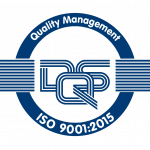Search Other Materials
Radel® Characteristics
Radel® – a high-performance, lightweight polyphenylsulfone thermoplastic, withstands soldering temperatures and offers the highest impact and steam resistance of any thermoplastic. Those properties make it a superior choice for parts for medical devices.
Radel® can withstand repeated steam autoclaving with no loss of dimensional stability. It is an ideal material for all types of medical instrumentation. With high dielectric strength and stability, it is also an excellent choice for electronic assembly equipment and devices.
Radel® is available in clear and custom colors. It is not appropriate for food-contact applications, and its properties will degrade when exposed to sunlight. Characteristics include:
- High tensile strength
Excellent heat resistance
- Steam resistant to 400° F
- Very high resistance to environmental stress
- High dielectric strength and stability
- Very good machining and finishing
Applications for Polyphenylsulfone
- Dental and surgical tools and instruments
- Insulin pens, blood glucometers, tubing, sterilization trays and cauterization devices
- End caps and other small components for pharmaceutical and electronics equipment
- Electronic assembly equipment
- Fluid handling couplings and fittings
Contact a Dielectric Manufacturing knowledge expert to discuss the use of this polyphenylsulfone thermoplastic. Call 800-367-9122 or email sales@dielectricmfg.com.
We also are a distributor of Radel material. Contact us to discuss how we can fulfill your material needs.
Polyphenylsulfone Material Properties
Dielectric Manufacturing, Richfield, Wisconsin USA dielectricmfg.com Radel Polyphenylsulfone Material Properties Provided By Dielectric Manufacturing, Richfield, Wisconsin
Property Metric units English units
General
Density 1.29e3 - 1.3e3 kg/m^3 0.0466 - 0.047 lb/ft^3
Mechanical
Yield Strength 5.3e7 - 5.85e7 Pa 7.69 - 8.48 ksi
Tensile Strength 6.63e7 - 7.31e7 Pa 9.62 -10.6 ksi
Elongation 0.558 - 0.645 % strain 55.8 - 64.5 % strain
Hardness (Vickers) 1.56e8 - 1.72e8 Pa 15.9 -17.5 HV
Impact Strength (notched) 1.1e4 - 1.22e4 J/m^2 5.23 -5.81 ft.lbf/in^2
Fracture Toughness 2.65e6 - 6.08e6 Pa/m^0.5 2.41 - 5.53 ksi/in^0.5
Young's Modulus 2.29e9 - 2.4e9 Pa 0.332 - 0.348 10^6 psi
Thermal
Max Service Temperature 168 - 186 °C 334 - 367 °F
Insulator or Conductor Insulator Insulator
Specific Heat Capability 1.45e3 - 1.51e3 J/kg °C 0.347 - 0.361 BTU/lb. °F
Thermal Expansion Coefficient 5.1e-5 - 6.1e-5 strain/°C 28.3 - 33.9 µstrain/°F
Eco
CO2 Footprint 1.77 - 1.8 kg/kg 1.77 - 1.8 lb/lb
Recyclable Yes Yes





